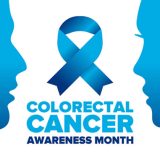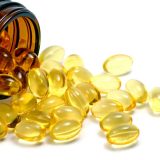Despite dramatic medical advances over the past 50 years, heart disease remains a leading cause of death globally and the most prevalent cause of death in the United States. While surgical procedures and pharmaceutical medications are often revered as the best ways to keep an impaired cardiovascular system in operation, a Japanese study reveals that boosting your dietary intake of two common B vitamins offers a significant heart health advantage.
News from Japan
As published in the April 2010 edition of Stroke: Journal of the American Heart Association, researchers found that foods rich in the B vitamins folate and B6 appear to reduce the risk of death from stroke and heart problems. By completing questionnaires about their dietary habits, a Japanese collaborative cohort study examined data from over 50,000 adults between the ages of 40 and 79. After a median follow-up of 14 years, the investigators found the following:
- A higher consumption of folate and B6 is associated with significantly fewer deaths from heart failure in men.
- A higher consumption of folate and B6 is associated with significantly fewer deaths from stroke, heart disease and total cardiovascular deaths in women.
- The protective effects of folate and B6 did not change even when adjustments were made for the presence of cardiovascular factors or when people taking supplements were eliminated from the analysis.
Homocysteine
According to the research team performing this retrospective evaluation, vitamin B6 and folate may fight cardiovascular disease by lowering levels of homocysteine, an amino acid in the blood that is affected by heredity and diet.
Epidemiological studies have shown that too much homocysteine in the blood is related to a higher risk of coronary heart disease, stroke and peripheral vascular disease. Other evidence suggests that homocysteine exerts an effect on atherosclerosis by damaging the inner lining of arteries and promoting blood clots. While a clear understanding of homocysteine’s role in heart health has not solidified, we do know that several B vitamins help break down homocysteine in the body.
Food Sources of Folate and B6
The research in Japan suggests that people concerned with their cardiovascular health consume a diet rich in folate and vitamin B6.
- Folate – Also known as vitamin B9, folate occurs naturally in food. Folic acid is the synthetic form of folate that is found in supplements and added to fortified foods. Good sources of folate include vegetables (especially spinach, turnip greens, broccoli, okra, mushrooms and lettuce), fruits (especially bananas, melons and lemons), whole or enriched grains, fortified cereals, yeast, organ meats (beef liver and kidney), orange and tomato juice, beans and legumes.
- Vitamin B6 – Also known as pyroxidine, a mild deficiency of vitamin B6 is common. Sources of vitamin B6 include fish, vegetables (especially carrots, spinach and peas), liver, legumes, meats, whole grains, potatoes, milk, cheese, eggs and fortified cereals.
Hiroyasu Iso, MD, professor of public health at Osaka University and one of the study authors, said in a news release that people in Japan need to increase their consumption of foods containing folate and vitamin B6. Americans have every reason to benefit from this information as well. If we all make sure to include folate and vitamin B6-rich foods in every meal, this study indicates that it might be possible to reduce the high incidence of fatalities from heart disease in both the U.S. and abroad.




